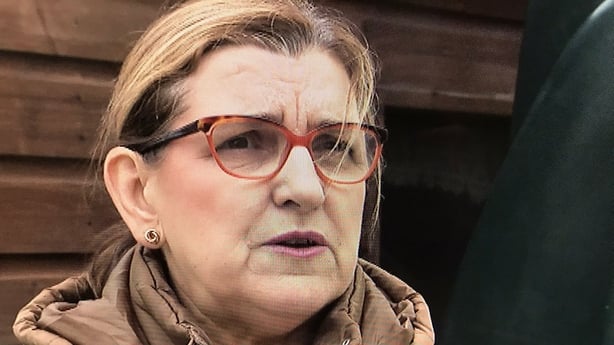The price of home heating oil in Northern Ireland has soared by 75% in the 12 days since Russia invaded Ukraine.
More than two thirds of homes north of the border rely on oil for their heating, the highest percentage rate in Western Europe.
The average price for 500 litres has increased from £320.10 (approx €385) on 23 February, the day before the war began, to £559.50 (€673) this afternoon.
The prices from the Consumer Council are based on daily samples of 11 oil suppliers across Northern Ireland.
Records compiled by the council reveal that the monthly average price for 500 litres of heating oil over the past ten years has been £234.28 (around €281).
"We're getting calls from lots of consumers asking if the prices they are being quoted are correct because they are shocked when they phone up their local supplier and hear the price," says Peter McClenaghan, Director of Infrastructure and Sustainability for the Northern Ireland Consumer Council.

"In defence of the suppliers, they're buying off the global market, they're taking a global market price so they have very little opportunity to barter on that price.
"They have to pass that price straight on to consumers. That's a big problem as we have such a high proportion of households dependent on oil for their heating."
There are around 300 oil suppliers across Northern Ireland and many are now limiting the amount of oil they will sell to individual customers.
The Consumer Council advice is to use suppliers registered with the Northern Ireland Oil Federation and ask them to quote their maximum price when placing an order.
There are a lot of families who are going to be really struggling because they just will not be able to afford to go out and buy oil
Northern Ireland has the highest dependence of households on oil for heating in Western Europe, with official estimates putting the figure at 68%
The problem is most acute in rural areas, which often have a limited number of suppliers.
Many people in those areas are members of oil buying clubs, overseen by the Northern Ireland Housing Executive.
It secures large discounts by bulk buying on behalf of 27 different clubs, with savings of up to 20%.
The scheme is aimed particularly at helping low income households which buy small amounts of oil on a regular basis, with some supplied on a weekly basis.
Jo Scott runs a club with 150 members in the village of Millisle on the Ards peninsula in Co Down.
But she said the scheme has had to be suspended because soaring prices and a shortage of supply mean discounts are not currently available.

"The scheme normally works really well and offers great savings, but suppliers aren't giving discounts at the minute because of what's happening with the prices," she explained.
"There's just no savings available. Websites have been closed down and they're not taking calls, particularly from the likes of oil bank clubs, because there's no savings in it for them whatsoever. It's tough at the minute.
"There are a lot of families who are going to be really struggling because they just will not be able to afford to go out and buy oil, and what do you do then? You know, it's really terrible."
It's estimated that around a third of all households in Northern Ireland are currently in fuel poverty, meaning they spend 10% or more of their income on energy.
With gas and electricity prices also increasing significantly there are concerns that number could reach more than 40% in the coming weeks.

Housing Executive Chief Executive Grainia Long said reducing fuel poverty and helping households to manage the costs associated with energy bills is a major priority.
"We won't know definitively for some time whether recent increases represent a long term trend or a more immediate challenge," she said.
"Our staff are monitoring the situation closely and advice and guidance on joining oil buying clubs is available via our website."
This Thursday the Stormont Assembly will open a scheme offering one-off payments of £200 to help people who are struggling with energy bills.
Payments are expected to be made to around 280,000 households in receipt of one or more qualifying benefits.







